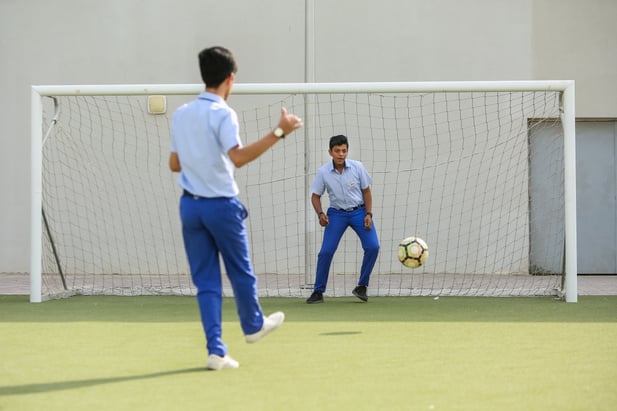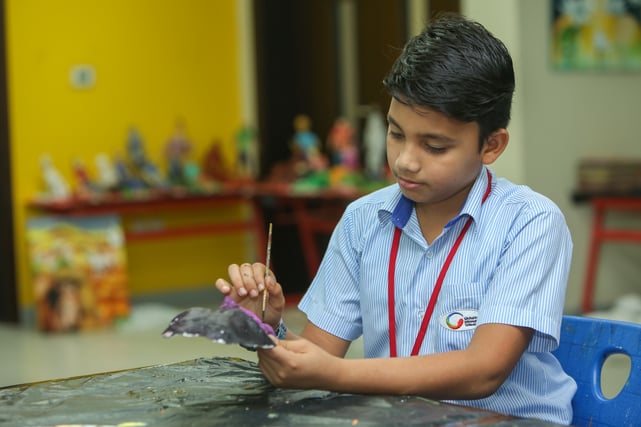Adolescence is that time of an individual’s life when everything is taking a turn on to the fast lane. The children are getting aware of the physical changes in their body and the inevitable gear up to adulthood. These transition years are a mix of diverse experiences torn between painful and rewarding.
Academic excellence suddenly takes priority. Broadly defined, achievement concerns the development of motives, capabilities, interests and behavior that have to do with performance in evaluative situations according to Steinberg, 1990. During adolescence this evaluative process takes place in an educational setting.
In a general sense, academic achievement is the current level of a student’s learning. More specifically for the purpose of accountability, academic achievement refers to the percentage of students at a school whose learning currently meets or exceeds their grade-level standards.
Academic achievement during adolescence is predicted by interpersonal relationships, namely parental engagement in adolescents’ education. Most parents are highly involved in their ward's education when they are in the lower grades. But as they grow older especially during the adolescence stage when a power struggle ensues in the home front between the parents and the child, the child is given the freedom to make his/her own study schedule.

If however parental monitoring is suddenly cut the teenager might not be able to figure out what to do with the new found independence. They might start misusing it and it will adversely reflect in their scores. Quite often parents are heard lamenting how their bright child scoring the 1st marks in lower grades has suddenly started bringing in bad grades in puberty years.
The reason more often than not is that the child has not had that mature conversation with the parents, wherein the pros and cons of the new found freedom have been discussed and explained. If the adolescent is made aware of responsible freedom then most of the children will continue to excel in their studies. Parents need to unobtrusively continue monitoring their child’s academic progress.
On the other hand, parents who continue to have a tight grip over their child’s academic progress need to accept that their ward is blooming into an adult and as a young adult deserves to be trusted with more responsibility. Though it is scary to give them the freedom, if this is not taught effectively at this stage then the future of the child as an independent adult is in jeopardy.
So ultimately as always it is a healthy balance of right and responsibility shared by the parent and their adolescent child that is going to result in measurable academic progress, which will pave the way for academic excellence that is benched marked collectively by the family.
The intrapersonal motivation however continues to be the game changer. Parents and teachers can only go that far in pushing the adolescent towards academic glory. The adolescent who is maturing into a young adult can achieve only what he or she wants. The child needs to logically understand that the grades scored in academics will bind them for eternity. They have to comprehend and accept the importance of scoring high. They have to stick to self-discipline to achieve their goals while adhering to a schedule made by them.

The adolescent should be passionate about academic excellence and nothing can stand in their way. All the achievers from underprivileged backgrounds who have cracked competitive exams are stalwarts’ examples for how important or even how it is the only important component for achieving academic excellence. If the child visualizes s/he will definitely achieve it.
Last but not the least the institution to which the adolescent is attached makes all the difference in the academic excellence of an adolescent. The infrastructure and resources at the school/college will enable the young adults to channelize and do extra work towards academic goals.
The toppers will achieve irrespective of where they study but for the majority of those adolescents who fall in the average scores area the teachers/mentors make all the difference. Many adolescents have found new love for a subject they detested just because of the teacher. Every institution with the right caliber of dedicated experienced team of teachers will definitely enable the young adult to achieve academic excellence to the level envisaged collectively by the adolescent, parent and teacher. Academic excellence by adolescents is the game changer for their lives as it sets the stage for college or future vocational training and opportunities.
We can safely conclude that like in life parents, teachers, institutions and even society play a vital role in the adolescent achieving academic excellence but ultimately it is the adolescent himself/herself who is responsible for the level of academic excellence achieved by them. As always nothing is impossible for a person who dreams big.
“If you can dream it, you can do it.” Walt Disney.




